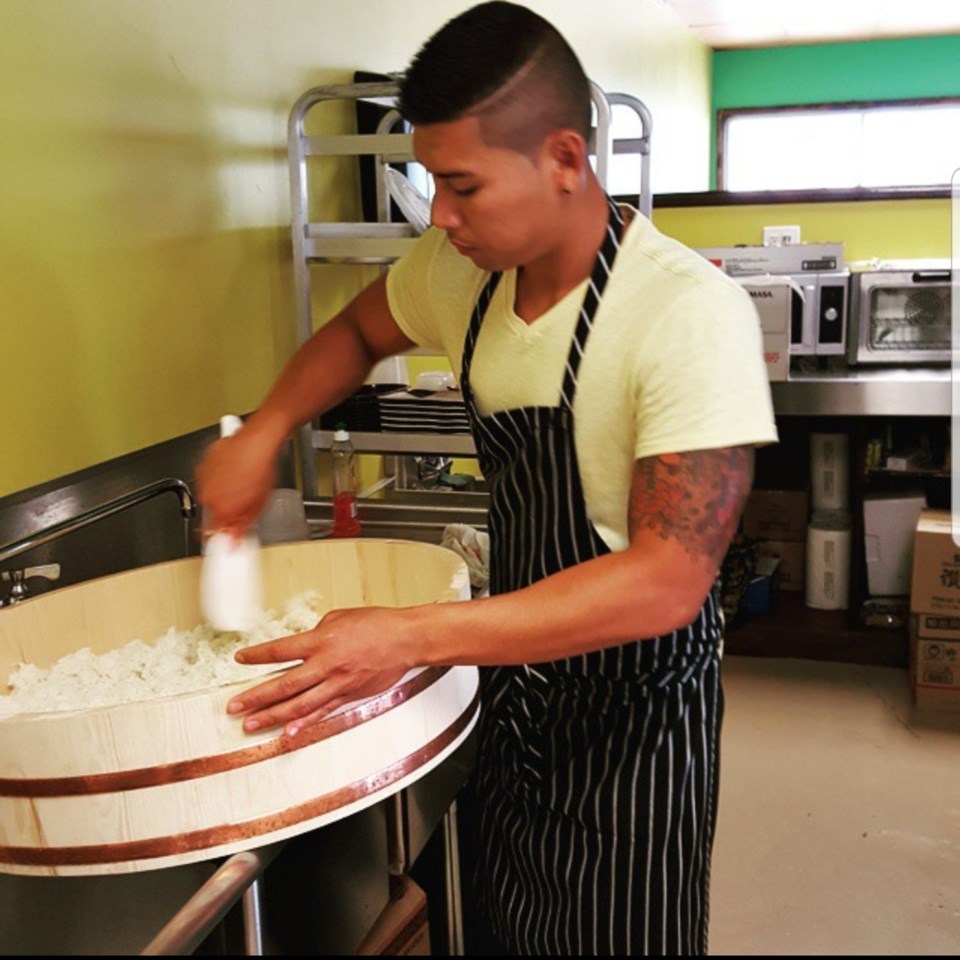Diversity and inclusion are two words that have been thrown around in recent years. Everyone has a different way of incorporating those words into their life. Chef Devin Keopraphay, the ideas of diversity and inclusion are the fabric of his culinary career.
As a first-generation immigrant from Thailand, Keopraphay grew up on the east coast with his parents. They owned a Chinese restaurant in Washington D.C. where Keopraphay began working in the kitchen as a dishwasher and helping wherever else he could.
He went through a rebellious phase, he said, and wanted to explore other types of food, so he went out and found a job in an American restaurant. This is was the first step to him exploring the many sides of food and its history.
“It definitely changed me. I think a lot of first-generation Americans go through this … that you don’t want to be who you are because going to school I was the stinky kid with the weird food. I had a weird accent for a long time,” Keopraphay said. “I wanted to run away from that idea of being Asain.”
Keopraphay said he never had much and was always trying to get by and restaurants have always been a place that guaranteed a meal. This included holding down several jobs at a time, whether in a restaurant or on the docks, there was always a connection to food.
Although, restaurant work ensured Keopraphay ate daily, he also saw opportunities in varying his culinary skills. This wasn’t a standard path for a chef, but Keopraphay said he learned more through his years helping in various kitchens than the few semesters he took of culinary school.
Keopraphay said he had not always worked in restaurants with the determination to be a chef, mostly it was to make sure he could eat. However, one day he was working in a sushi restaurant in Deleware where he realized he didn’t really know anything about how to properly prepare sushi.
“I saw how stunted my growth was,” he said after realizing he was unable to master skills that he thought he had learned.
It was in that moment that he realized that he needed to learn even more if he was going to be able to prepare food at the next level.
“There was more out there, more styles of cooking, more to learn,” Keopraphay said.
Learning didn’t stop at how to prepare the food, he said. Keopraphay jokes that he should have been a food historian but competition always gets the better of him.
Keopraphay enjoys researching the history of food in order to recreate it. As a child, his family was used to having access to a river and of a certain way of cooking authentic dishes. Once they migrated to America, money was tight and Keopraphay’s family made due by substituting ingredients with affordable options. This might include adding hot dogs to fried rice, he said.
Keoprayphay has studied in many different kitchens over the years, but has settled into his own take on Asian American dishes.
“I never want someone to come and eat my food and say ‘This isn’t real Thai food.’ Because I will be the first to say it is not real Thai food,” Keopraphay stated. “I’m cooking food that is an interaction of what my mom cooked for us with the ingredients that we had that were local … It is kinda taking a little bit of home and showcasing that but also showcasing all the things I have learned along the way.”
“That’s what I tell people, travel and be open-minded and don’t rush things,” Keopraphay said. This is a philosophy that he personally uses in his kitchen.
Currently, Keopraphay works out of the Times Collaborative kitchen cooking for special events and classes. His dream is to open his own cafe and bakery, Rising Tiger, that will serve Asian American-style on-the-go breakfast. The options could include noodles, baked goods and breakfast sandwiches.
“I want to develop a community where I can share this information about cooking and our culture,” Keopraphay said, adding “I think food is one of the easiest way to build a bridge to expand the culture.”
Longmont has strong representation of Asian American culture, something Keopraphay is proud to be part of. He hopes to bring a better understanding to others in the community through his food and knowledge of its history.
Above all, Keopraphay hopes his new cafe will become a safe space for everyone, a place where everyone can feel free to be themselves.
Keopraphay felt as though he never really fit into any one culture growing up as a “brown American,” he said. “You’re not Asian enough, because you speak with an American accent but you are kinda just lost.”
Knowing what it feels like to feel isolated and lost, Keopraphay understands how some of his LGBTQ+ family and friends feel and wants to create a space that welcomes everyone.
“... just being this space that can be filled with ideas, great food and just expand Longmont in a different way of thinking as well,” Keopraphay said. “To have a safe space for everyone to feel complete.”

.jpg;w=120;h=80;mode=crop)

